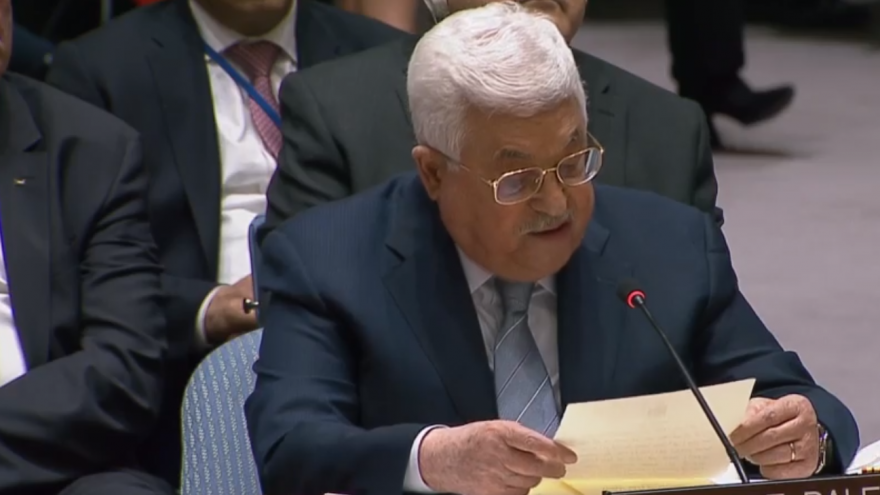We live in historic times. The Arabs of Israel, in the past suspicious of “occupier” Israel, now embrace Israeli rule and say they wish to remain part of Israel even if the Palestinians fulfill their national aspirations and see a state established.
U.S. President Donald Trump’s Middle East peace plan has pledged many benefits for Israel, and also includes a series of preconditions the Palestinian must meet, including relinquishing all forms of terrorism and adopting proper governance practices.
As expected, Palestinian Authority leader Mahmoud Abbas has rejected the plan, but he likely did not expect Israeli Arabs—and Arab states, for that matter—to deviate as much as they have from the Palestinian “line.”
This shows how well-crafted Trump’s plan is, and further underscores the fact that the Palestinians truly have no idea how to take advantage of opportunities.
The plan presents specific goals and metrics that Palestinians must meet before they become “eligible” for a state, in fact before they can even negotiate for one.
These metrics include, among other things, respect for human rights, implementing rule of law and refraining from killing Jews.
The peace plan’s critics argue that it is “grossly biased” in Israel’s favor. When the United States demands that the Palestinians “stop killing Jews and respect human rights” to gain its support for a state, that’s “biased”?
If these conditions are rejected by the Palestinians, meaning they will not commit to establishing good governance and fighting terrorist organizations, then negotiations are not feasible to begin with, let alone a Palestinian state.
Moreover, if the Palestinians are not even willing to consider land swaps, if they are unwilling to even entertain the idea that Palestinian refugees will not be able to return to Israel, then it no longer matters whether they reject or accept the plan. They clearly have no interest in taking control of their own fate and prefer to continue using Israel—and even the refugees—as a punching bag.
The Palestinians had hoped that the Arab world and Arab Israelis alike would side with them and reject the “deal of the century,” thus forcing the administration to revise it. But the moderate Arab states, which long ago decided it is better to align themselves with the United States and Israel, have actually welcomed the plan.
Arab Israelis concerned by the U.S. recognition of Jerusalem as the Israeli capital and the relocation of the U.S. embassy there from Tel Aviv, and the Arab parties, which often openly oppose the state, have now been presented with a choice: Which side do you wish to belong to—the “Israeli occupation” or the “future state of Palestine”?
They clearly prefer the former.
All of which only goes to show to what extent Arabs Israelis do not trust the Palestinian leadership to provide them with the security and quality of life they enjoy as Israeli citizens. Arab Israelis prove, in their own way, that the parameters outlined in the U.S. peace plan are not meant to serve Israel’s interest, but rather first and foremost to ensure the safety of the Palestinians.
No Palestinian wants to live in a country that may as well be the Wild West, even if said Wild West is supposed to embody their national aspirations.
Ironically, Arab Israelis have all but told Abbas as much: We see no reason to establish a Palestinian state before you can prove we can live there safely and without fear, as we do in Israel.
The Americans understand this, Arab Israelis understand this, and now the Israeli left must also understand that this plan has succeeded in altering not only the paradigm of Israel vis-à-vis the Palestinians, but also of the Palestinians among themselves, and between Arab Israelis and the Palestinians.
This is the best possible outcome we could have wished for—the State of Israel has become popular among voters supporting the Arab parties, the same ones who have long since ceased to represent them in lieu of representing Abbas and his interests.
It cannot be overlooked that Trump’s peace plan is the best way for Israel to achieve all of its security aspirations in the long term and its sovereignty aspirations in the present. However, there is no real basis for the claim that the plan is solely “pro-Israeli,” as it is clearly “pro-Palestinian” as well.
Boaz Bismuth is editor-in-chief of Israel Hayom.
This article first appeared in Israel Hayom.


























